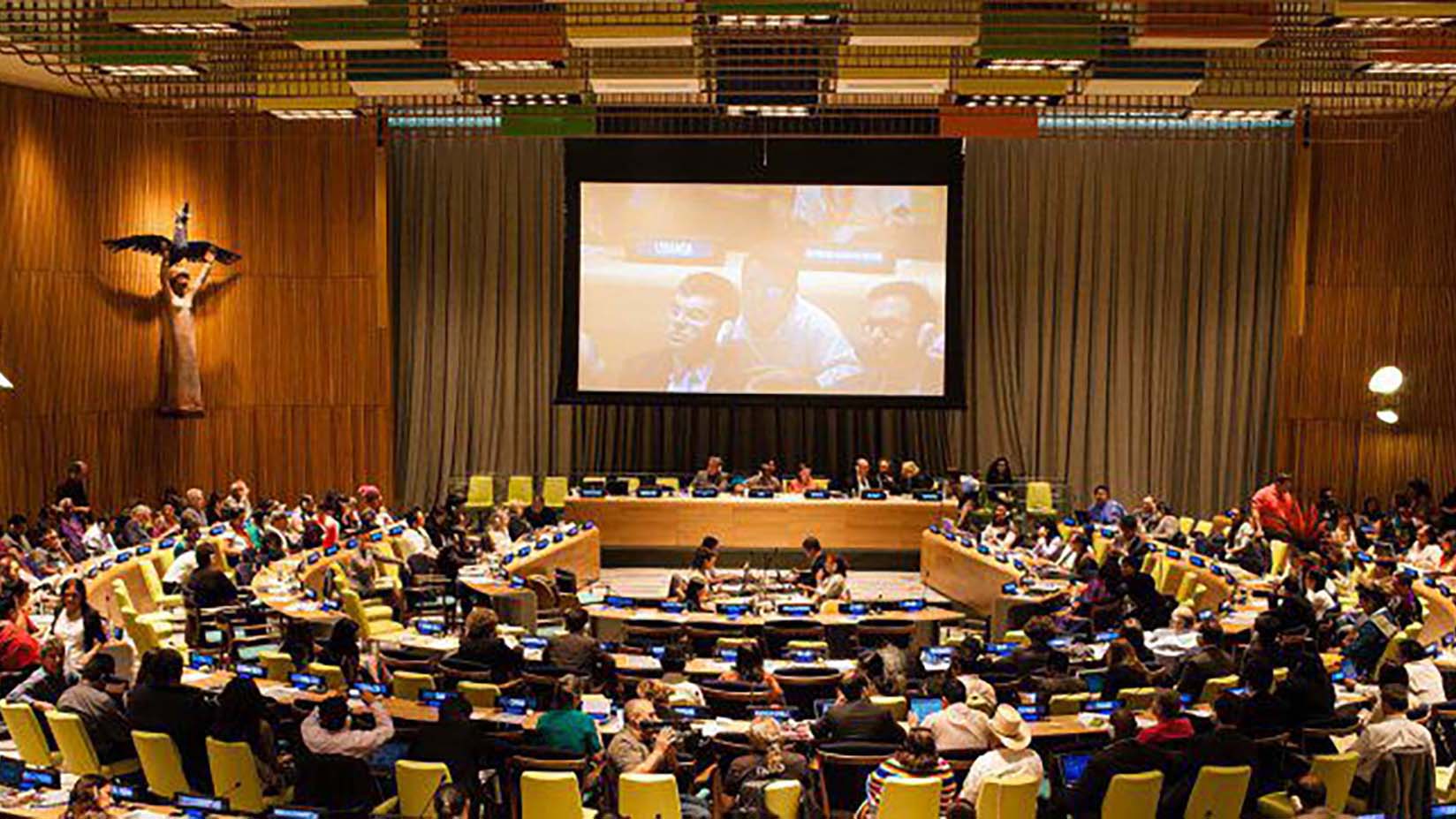ITEM 4: DISCUSSION ON THE SIX MANDATED AREAS OF THE PERMANENT FORUM (ECONOMIC AND SOCIAL DEVELOPMENT, CULTURE, ENVIRONMENT, EDUCATION, HEALTH AND HUMAN RIGHTS), WITH REFERENCE TO THE UNITED NATIONS DECLARATION ON THE RIGHTS OF INDIGENOUS PEOPLES, THE OUTCOME DOCUMENT OF THE WORLD CONFERENCE ON INDIGENOUS PEOPLES AND THE 2030 AGENDA FOR SUSTAINABLE DEVELOPMENT.
Mandated area: Environment
During the past year, Indigenous Peoples Rights International (IPRI) has supported the development of several case studies on violence and criminalization of indigenous peoples related to conservation activities, mainly protected areas, overlapping their traditional lands and territories. The case studies were developed by indigenous partner organizations in Nepal, the Democratic Republic of Congo, Tanzania, Kenya, and Thailand.
A common feature identified in all these countries is that gross violations of the human rights of Indigenous Peoples in this context continue, in spite of the commitment by the conservation community to adopt a human rights approach to conservation. Killings, criminalization, forced displacement and torture are still common occurrences in all the countries studied (This situation has been analyzed by former Special Rapporteur on the rights of indigenous peoples, Victoria Tauli-Corpuz, and is currently under study by the current Special Rapporteur Francisco Cali.)
During the past decade, the conservation community, including IUCN and major conservation organizations, have committed to implement a human rights approach to conservation, including respecting the rights of Indigenous Peoples as enshrined in the UN Declaration on the Rights of Indigenous Peoples.
Moreover, the role of indigenous peoples as the best custodians of nature has been increasingly recognized by the scientific community, and the need to partner with indigenous peoples to confront the serious climate and biodiversity crisis affecting the Planet.
In spite of this, the fortress approach to conservation, linked to a colonial mentality, continues to be implemented in many countries. Legal frameworks that criminalize indigenous peoples’ livelihood practices, and do not recognize their rights to their lands, territories, and natural resources, are found in many countries. The old-fashioned ‘nature without humans’ conservation model has produced forced displacement of indigenous peoples. The creation of protected areas overlapping indigenous traditional territories creates new jurisdictions under the control of environmental authorities, limiting indigenous peoples’ rights to self-determination, self-government, and autonomy.
The creation of World Heritage Sites (WHS) on indigenous traditional lands is a case in point. Latest decisions by the UNESCO Committee on WHS Sites have totally disregarded calls of affected Indigenous Peoples for the respect of their rights. These decisions violate UNESCO’s own policies on the rights of Indigenous Peoples.
The UNPFII has already addressed violations of the rights of Indigenous Peoples in conservation initiatives and has called for the respect of Indigenous Peoples’ Free, Prior and Informed Consent and for restitution in the case of forced displacement (see, for instance, Recs 80 or 159).[1] In order to implement these and related recommendations and put an end to the violation of the rights of indigenous peoples in the name of conservation, IPRI would like to call on the UNPFII to:
Organize, during its 22nd session, a thematic dialogue between IUCN and Indigenous Peoples on conservation and the human rights-approach to assess progress and gaps regarding the respect of Indigenous Peoples’ rights in conservation. The UNPFII could also invite international conservation organizations working or supporting conservation activities on or affecting Indigenous Peoples’ territories.
Further, the UNPFII shall request the UNESCO to submit a report during its 22nd session, on the implementation of its policies and guidelines relating to Indigenous Peoples, particularly in the context of the World Heritage Convention. The UNPFII should also call on UNESCO to engage in an interactive dialogue during the 22nd session with the UNPFII and indigenous peoples on its findings.
[1] Rec 80: The Forum recommends that the World Conservation Union Congress, to be held in November 2004 in Bangkok, endorse the recommendations on Indigenous Peoples and protected areas, as well as other relevant recommendations (such as on sacred sites) adopted by the Fifth World Parks Congress. It should also emphasize the need for the recognition of community conserved areas and indigenous peoples’ protected areas, the need for the full respect for indigenous peoples’ rights and the need for indigenous peoples’ free prior informed consent to be obtained before the declaration or in the management of any protected area which may affect them
Rec 159: The Forum recommends that these conservation organizations ensure the full participation of indigenous peoples in the implementation of the Conservation Initiative on Human Rights. The Forum further recommends that conservation organizations that have projects that have led to the eviction of indigenous peoples from their forests provide redress and restitution to such victims.
On UNESCO. Rec 42: The Permanent Forum recommends that UNESCO World Heritage Committee and IUCN, ICOMOS and ICCROM, ensure that current World Heritage nominations comply with international norms and standards of free, prior and informed consent
Rec 107: The Forum recommends that UNESCO and the World Heritage Committee implement the Convention in accordance with the rights enshrined in the United Nations Declaration on the Rights of Indigenous Peoples, taking an approach based on human rights.


